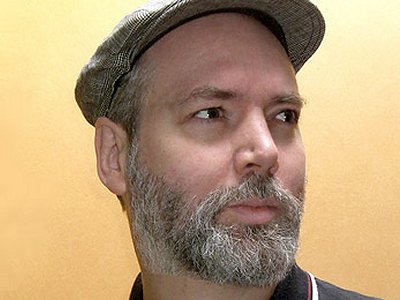
THE GOSPEL ACCORDING TO DOUGLAS COUPLAND
One artistic voice from outside the Church is asking all the questions that need to be asked about life on earth.
The bookshops of Britain are only ever full just before summer or Christmas, as frantic shoppers – desperate either for a good novel to read on the beach or to give to a relative – search for the ideal purchase. It takes some time to get behind the cynical trade in celebrity autobiographies and movie tie-in promotions and even if we manage this, there is such a bewildering array of authors on display that we tend to revert only to those we remember reading before. Online trade is no different because Amazon’s algorithms ensure we only ever encounter people and subjects we are familiar with from previous browsing patterns.
This might be a good moment to introduce you to Douglas Coupland, a Canadian author who writes as prolifically as Woody Allen directs films and has his finger on what Germans call the zeitgeist, the spirit of the age. Coupland scrabbles among the detritus of the throw-away consumer society to re-construct images of the human race at once pitiful and beautiful. He is most famous for his early novel Generation X, which identifies a blank generation (hence the X) pacified by MTV and heading for a life of McJobs – transient, unsatisfying, low-paid employment in the service industry. Among other novels, he has subsequently penned Miss Wyoming (on fame and invisibility), Hey Nostradamus (loosely based on the Columbine high School shootings) and All Families are Psychotic (the title alone makes you want to buy it)
Rather like Charles Dickens and his admiring fellow author Tom Wolfe, Coupland populates his stories with vivid caricatures and outlandish coincidences. His writing is enriched by a devotion to the flawed yet kindly relationships we find in families and among friends, without which this world might assume a cruel and unforgiving shape. It is a sign of his empathy that he was able to get inside the life of a plain-looking, friendless and lonely forty-something woman in Eleanor Rigby and craft a tale of human redemption devoid of sentimentality.
Coupland’s exploration of the spiritual realm is fascinating. He has described his greatest fear as being that God exists, but that he isn’t particularly interested in us. At least three of his novels: Girlfriend in a Coma, Generation A and the recently released Player One concern the effects of secular apocalyptic events. The last of these posits a Hobbesian world of unsparing cruelty after the oil runs out and explores the underlying anxiety Coupland feels about God not caring. His thinking is full of faith, even though he is known to be sceptical of organised religion and, in particular, the sectarian mentality. One journalist who interviewed him told me Coupland was asking all the questions about love, purpose and destiny which the Church is trying to raise in its outreach, without having had any tangible engagement with Christians on these issues. This observation might usefully prompt new choices in some Christian reading circles.
Although his portrayal of Christians has sometimes made me wince, I have always felt he is more like a critical friend (unlike say Philip Pullman, whose enmity is sharper and intentional) and a voice from outside mainstream Christianity which makes me curious about the wonders of creation and the glory of human friendship, two gifts which should never be taken for granted.
POPULAR ARTICLES

Obama's Covert Wars
The use of drones is going to change warfare out of all recognition in the next decades.

Through A Glass Starkly
Images of traumatic incidents caught on mobile phone can be put to remarkable effect.

What Are British Values?
Is there a British identity and if so, what has shaped the values and institutions that form it?


